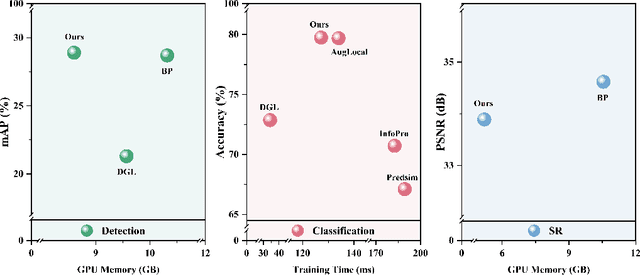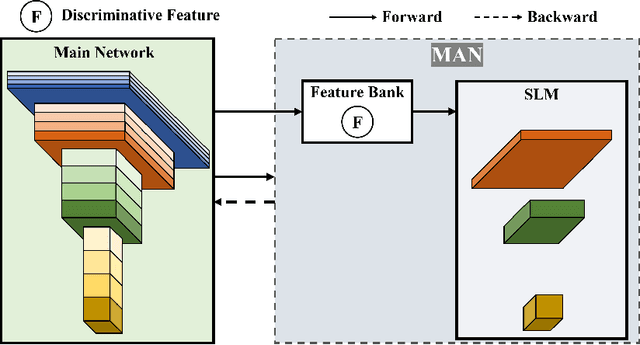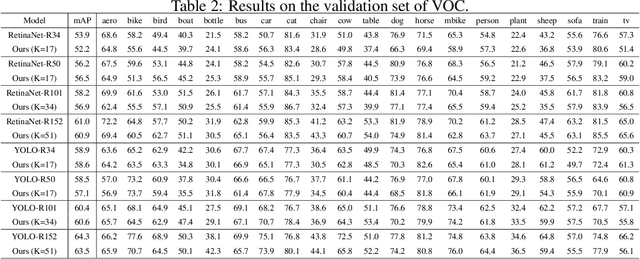GLCAN: Global-Local Collaborative Auxiliary Network for Local Learning
Paper and Code
Jun 01, 2024



Traditional deep neural networks typically use end-to-end backpropagation, which often places a big burden on GPU memory. Another promising training method is local learning, which involves splitting the network into blocks and training them in parallel with the help of an auxiliary network. Local learning has been widely studied and applied to image classification tasks, and its performance is comparable to that of end-to-end method. However, different image tasks often rely on different feature representations, which is difficult for typical auxiliary networks to adapt to. To solve this problem, we propose the construction method of Global-Local Collaborative Auxiliary Network (GLCAN), which provides a macroscopic design approach for auxiliary networks. This is the first demonstration that local learning methods can be successfully applied to other tasks such as object detection and super-resolution. GLCAN not only saves a lot of GPU memory, but also has comparable performance to an end-to-end approach on data sets for multiple different tasks.
 Add to Chrome
Add to Chrome Add to Firefox
Add to Firefox Add to Edge
Add to Edge